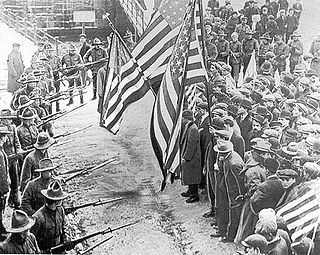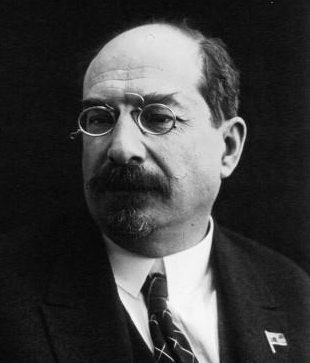
Left-wing politics describes the range of political ideologies that support and seek to achieve social equality and egalitarianism, often in opposition to social hierarchy as a whole or certain social hierarchies. Left-wing politics typically involve a concern for those in society whom its adherents perceive as disadvantaged relative to others as well as a belief that there are unjustified inequalities that need to be reduced or abolished through radical means that change the nature of the society they are implemented in. According to emeritus professor of economics Barry Clark, supporters of left-wing politics "claim that human development flourishes when individuals engage in cooperative, mutually respectful relations that can thrive only when excessive differences in status, power, and wealth are eliminated."

Free love is a social movement that accepts all forms of love. The movement's initial goal was to separate the state from sexual and romantic matters such as marriage, birth control, and adultery. It stated that such issues were the concern of the people involved and no one else. The movement began during the 19th century and was advanced by hippies during the 1960s and early 70s.

Alexandra Mikhailovna Kollontai was a Russian revolutionary, politician, diplomat and Marxist theoretician. Serving as the People's Commissar for Welfare in Vladimir Lenin's government in 1917–1918, she was a highly prominent woman within the Bolshevik party. She was the first woman to be a cabinet minister, and the first woman ambassador.

The Workers' Opposition was a faction of the Russian Communist Party that emerged in 1920 as a response to the perceived over-bureaucratisation that was occurring in Soviet Russia. They advocated the transfer of national economic management to trade unions. The group was led by Alexander Shlyapnikov, Sergei Medvedev, Alexandra Kollontai and Yuri Lutovinov. It officially existed until March 1921 when it was forced to dissolve by the 10th Congress of the Russian Communist Party (Bolsheviks), and semi-clandestinely until the subsequent 11th Congress in 1922, where its main exponents teetered dangerously on the verge of being purged for fractionist activity. In some aspects, it was close with the German council communist movement, although there is no information about direct contacts between these groups.

Anatoly Vasilyevich Lunacharsky was a Russian Marxist revolutionary and the first Bolshevik Soviet People's Commissar (Narkompros) responsible for the Ministry of Education as well as an active playwright, critic, essayist, and journalist throughout his career.

Yevgeny Aleksandrovich Mravinsky was a Soviet and Russian conductor, pianist, and music pedagogue; he was a professor at Leningrad State Conservatory.

Nadezhda Konstantinovna Krupskaya was a Russian revolutionary and the wife of Vladimir Lenin.

Alexander Alexandrovich Blok was a Russian lyrical poet, writer, publicist, playwright, translator and literary critic.
Marxist feminism is a philosophical variant of feminism that incorporates and extends Marxist theory. Marxist feminism analyzes the ways in which women are exploited through capitalism and the individual ownership of private property. According to Marxist feminists, women's liberation can only be achieved by dismantling the capitalist systems in which they contend much of women's labor is uncompensated. Marxist feminists extend traditional Marxist analysis by applying it to unpaid domestic labor and sex relations.
Socialist feminism rose in the 1960s and 1970s as an offshoot of the feminist movement and New Left that focuses upon the interconnectivity of the patriarchy and capitalism. However, the ways in which women's private, domestic, and public roles in society has been conceptualized, or thought about, can be traced back to Mary Wollstonecraft's A Vindication of the Rights of Woman (1792) and William Thompson's utopian socialist work in the 1800s. Ideas about overcoming the patriarchy by coming together in female groups to talk about personal problems stem from Carol Hanisch. This was done in an essay in 1969 which later coined the term 'the personal is political.' This was also the time that second wave feminism started to surface which is really when socialist feminism kicked off. Socialist feminists argue that liberation can only be achieved by working to end both the economic and cultural sources of women's oppression.

Proletkult, a portmanteau of the Russian words "proletarskaya kultura", was an experimental Soviet artistic institution that arose in conjunction with the Russian Revolution of 1917. This organization, a federation of local cultural societies and avant-garde artists, was most prominent in the visual, literary, and dramatic fields. Proletkult aspired to radically modify existing artistic forms by creating a new, revolutionary working-class aesthetic, which drew its inspiration from the construction of modern industrial society in backward, agrarian Russia.

State of Revolution is a two act play by Robert Bolt, written in 1977. It deals with the Russian Revolution of 1917 and Civil War, the rise to power of Vladimir Lenin, and the struggles of his chief lieutenants – namely Joseph Stalin and Leon Trotsky – to gain power under Lenin in the chaos of the Revolution.
God-Building is an idea proposed by some prominent early Marxists in the Bolshevik faction of the Russian Social Democratic Labour Party. Inspired by Auguste Comte's Religion of Humanity, the concept had some precedent in the French Revolution with the Cult of Reason. The idea proposed that in place of the abolition of religion, there should be a meta-religious context in which religions were viewed primarily in terms of the psychological and social effect of ritual, myth, and symbolism, and which attempted to harness this force for pro-communist aims, both by creating new ritual and symbolism, and by re-interpreting existing ritual and symbolism in a socialist context. In contrast to Leninist atheism, the God-Builders took an official position of agnosticism.

The Council of People's Commissars of the Russian Soviet Federative Socialist Republic was the government of Soviet Russia between 1917 and 1946. It was established by the Second All-Russian Congress of Soviets of Workers', Soldiers', and Peasants' Deputies on November 9, 1917 "as an interim workers' and peasants' government" under the name of the Council of People's Commissars, which was used before the adoption of the Constitution of the Russian Socialist Federative Soviet Republic of 1918.
Events from the year 1917 in Russia.
Red Love is a Russian novel in 1923 by Alexandra Kollontai, a prominent female Bolshevik theoretician. It was translated in 1927 into English and Japanese. The novel asks deep question about the dynamics between Soviet socialism and the romantic life of Bolshevik women. It was adapted into a German film in 1982.
Zoya Leonidovna Shadurskaia (1873-1939) was a well-educated Russian noble who was active in Russian revolutionary movement from the 1890s. She was a feminist and remained life long friends with Alexandra Kollontai.

Sofia Nikolaevna Smidovich was a Bolshevik revolutionary, feminist and the leader of the Zhenotdel from 1922 to 1924.
Iva Lulashi is an Albanian painter who works in Milan.











